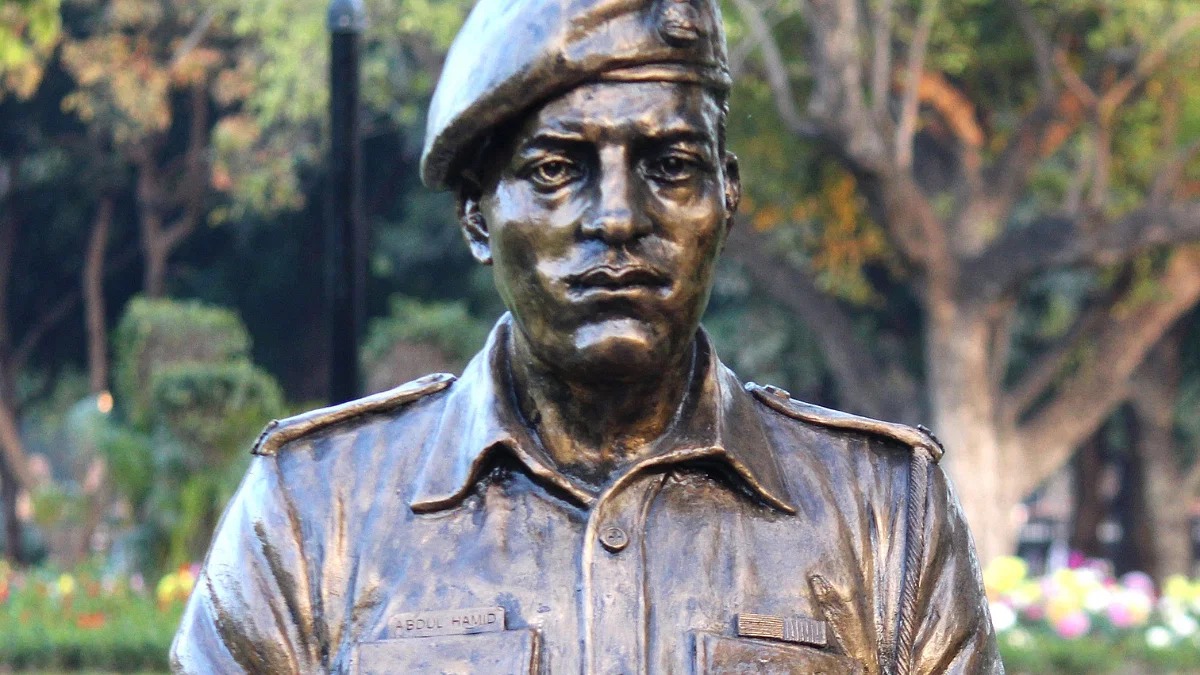- उत्तर प्रदेश सरकार
- GOVERNMENT OF UTTAR PRADESH
Home > Members > Shubham Mishra > Story >
Back05:28 AM
Abdul Hamid: The Bravery That Shook the Sands of Time
In the dusty terrains of Ghazipur, where the sun blazed relentlessly and the echoes of history lingered, there lived a man whose name would become synonymous with bravery—Abdul Hamid. His story, like a beacon of courage, pierced through the annals of time, inspiring generations with its unwavering spirit.
Abdul Hamid was not born into wealth or privilege. He hailed from humble beginnings, his life woven into the fabric of a small village that stood as a testament to the resilience of its people. As he grew, so did his dreams—dreams of making a difference, of leaving an indelible mark on the world.
In the early 1960s, a storm was brewing on the horizon—a storm of conflict and turmoil. Abdul Hamid, a soldier in the Indian Army, found himself stationed in the arid deserts of Khemkaran, near the western border. It was here that his bravery would be etched into the pages of history.
During the heat of battle, as enemy tanks advanced with a relentless fury, Abdul Hamid stood undaunted. With a heart afire with determination, he mounted a recoilless gun—a weapon that, in his hands, would become a symbol of defiance. As the tanks drew near, he took aim with unyielding resolve.
The thunderous roar of gunfire echoed through the desert air, a testament to Abdul Hamid's steely nerves and unflinching courage. With each shot, he struck down an enemy tank, his actions like a symphony of bravery playing out on the battlefield. His aim was unwavering, his spirit unbreakable.
As the battle raged on, Abdul Hamid's actions not only halted the enemy's advance but also infused his fellow soldiers with a renewed sense of hope. His heroics became a rallying cry, a reminder that even in the face of overwhelming odds, one man's courage could tip the scales of destiny.
Tragically, Abdul Hamid's valor came at a great cost. As he continued to engage the enemy, a tank shell struck his position, silencing his heroics but igniting a flame of inspiration that would burn for eternity. His sacrifice was not in vain, for his bravery had paved the way for a turning point in the conflict.
Abdul Hamid's legacy lives on, a beacon of courage that continues to illuminate the path of those who dare to dream and aspire to make a difference. His story is a reminder that bravery knows no bounds, that it can emerge from the most unexpected of places, and that a single act of valor has the power to change the course of history.
In the heart of Ghazipur, Abdul Hamid's name is etched into the town's very soul, a tribute to the unbreakable spirit that defines its people. His bravery, like an eternal flame, burns brightly, inspiring generations to rise above adversity, to stand tall in the face of challenges, and to embody the true essence of courage that knows no limits.

